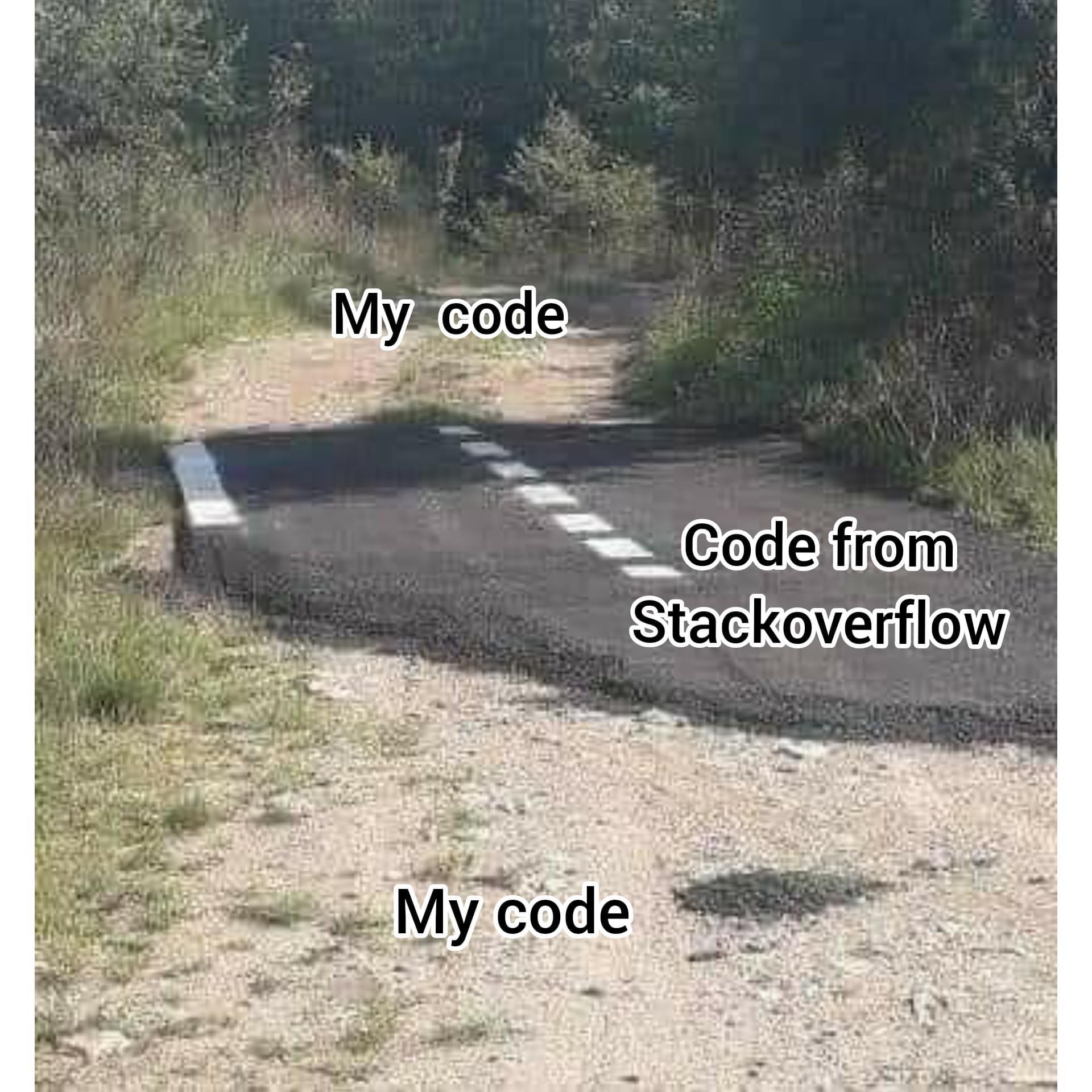Published 2025-09-16
tag(s): #programming #random-thoughts #link-post
The always insightful Andreas has a new post up,
"Is
the ability to think going to become a rare and valuable skill?".
I won't spend time recommending his blog, because everyone seems to know about it already.
:)[1]
I suggest you go over his post first (it isn't very long), I have one comment about it.
And in the next section there will be a reference to a science fiction story, the first thing
that came to mind after I finished reading Andreas post.
The closing section explains why we must keep the story a secret...
This particular colleague is very fond of using ChatGPT for basically everything, and watching him work is nothing short of horrifying. I've seen code that he produced and often I could refactor it to be about half the number of lines of code within a couple of minutes, because he just copy/pastes whatever ChatGPT produces into his IDE and if it works, then that's it, nothing more to do here.
I have seen this kind of thing before, and before ChatGPT existed:

Ever since StackOverflow is a thing, we had people randomly copy and pasting examples and
"solutions" without understanding why they work (or don't).
Usually (not always) the people who do this kind of thing are the ones that are the least
passionate about software development, and see it as "just a job".
And there's nothing wrong with that![2]
But for some of us who care a great deal about it, we need a reminder once in a while
that it is OK to just solve the problem by any means necessary.
Of course this opens a whole can of worms about the whole team having to maintain the disgraceful code, but...topic for another day.
The apparition of StackOverflow, for people like me who started when the only way to know how
to use an API was to read its manual[3], was a weird thing.
On the one hand, it made getting started in software development a lot easier.
On the other, it made going over the documentation for something a bit of a vintage thing. And
reading error messages too. Did something blow up? Don't read! Just copy-paste the error in a
SO query and get answers now.
I am not sure how much of this is rose-colored glasses, and how much it is a real effect, but
I don't recall documentation in the 00s jumping straight to a few code samples. Everything was
more book-ish: introduction, explaining some concepts and lingo, and then some code, starting
slowly.
So the "StackOverflow effect" even changed how we write tutorials.
Or...I am old enough to exaggerate how things use to be.
And, the best? worst? part is that both can be true at the same time!!!
I had two HUGE books growing up, full of short stories by Isaac Asimov. Vol 1 and 2, and I
never found out if there were more volumes. Or if they were translated too.
Anyway, I remember quite a few stories pretty vividly, and the one that came to mind
immediately after reading this paragraph...
But I'm also wondering if there's an opportunity in there for people who keep their minds sharp to become really valuable on the job market in the not-too-distant future when everybody else has turned their brain into the equivalent of an atrophied and useless leg due to solving every single problem they encountered by immediately turning to AI to provide an answer.
...is one called "Profession
(Wikipedia)". It isn't very long, and it can be read entirely from this website (and no, I
have no idea if this page is legal or not, but it seems harmless):
Read the "Profession" by Isaac Asimov here
(abelard.org).
If you don't feel like visiting fringe websites[4] or going over the
summary in the Wikipedia page, I have learned about
the greatest and latest of HTML from
other small web bloggers, so you can witness my very first "details" tag:
So, the answer to Andreas' question, will people who have the ability to think for
themselves, and bang their heads on a problem, become more valuable in the near-future?
,
has existed since 1957, and it is a resounding yes.
This wonderful 50s story of awakening and superation has the following passage:
"We bring you here to a House for the Feeble-minded and the man who won’t accept that is the man we want. It’s a method that can be cruel but it works. It won’t do to say to a man, 'You can create. Do so.' It is much safer to wait for a man to say, 'I can create, and I will do so whether you wish it or not.' [...] We can’t allow ourselves to miss one recruit to that number or waste our efforts on one member who doesn’t measure up."
I know that the intention here is to make for a good narrative, but even Asimov
couldn't predict the current state of tech.
I can imagine a group of startup financiers feeling legitimized in their world view of "the
only ones that make it the ones that overcome this hunger-esque challenge and want to create
despite all hurdles", and citing this story as validation.
Or how about the revamped Big Tech hiring process, created to break you down until you show
that "you are one of the good ones", only after your indomitable creative spirit overcomes
being told "no" over and over.
So...let's not popularize this story 👀